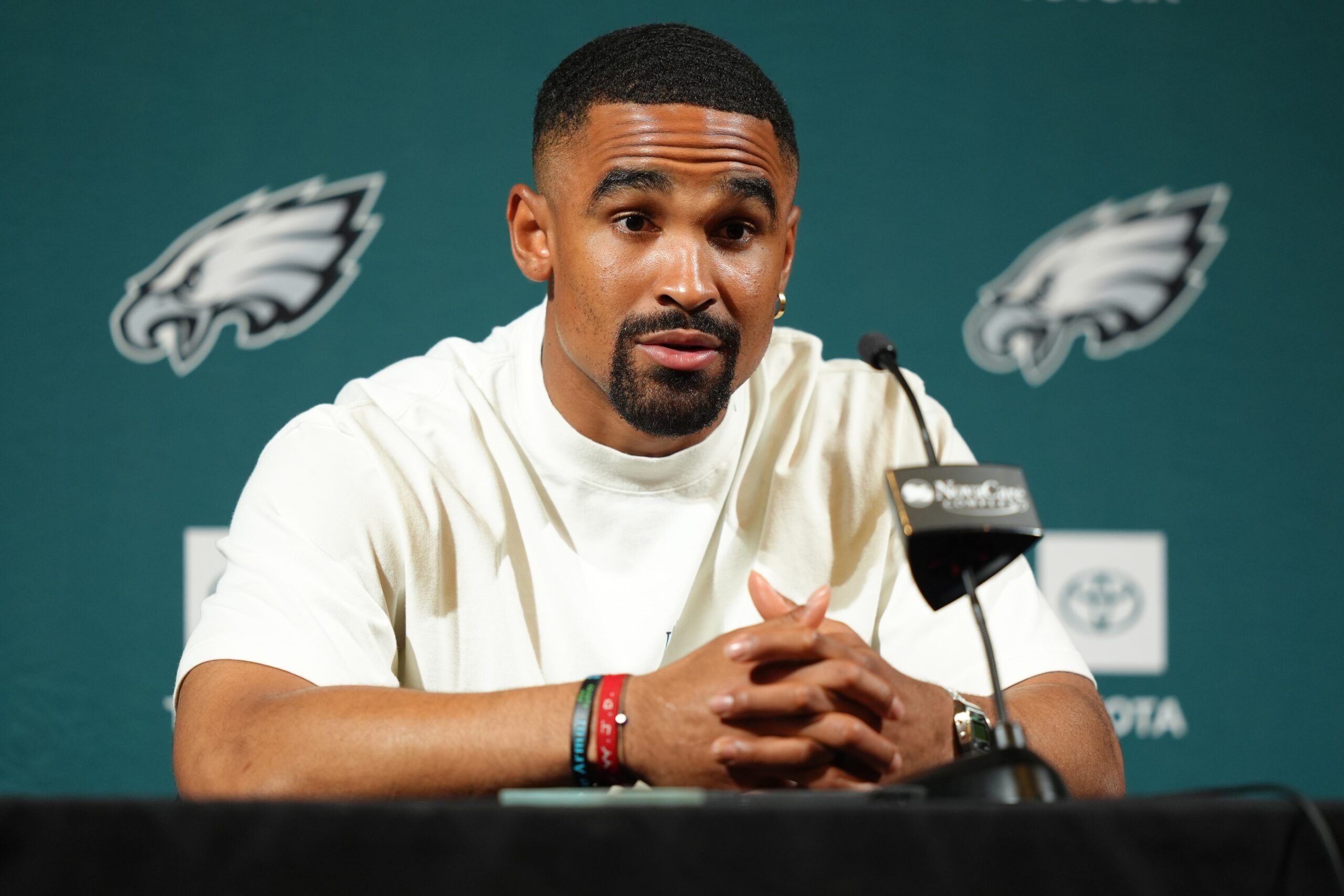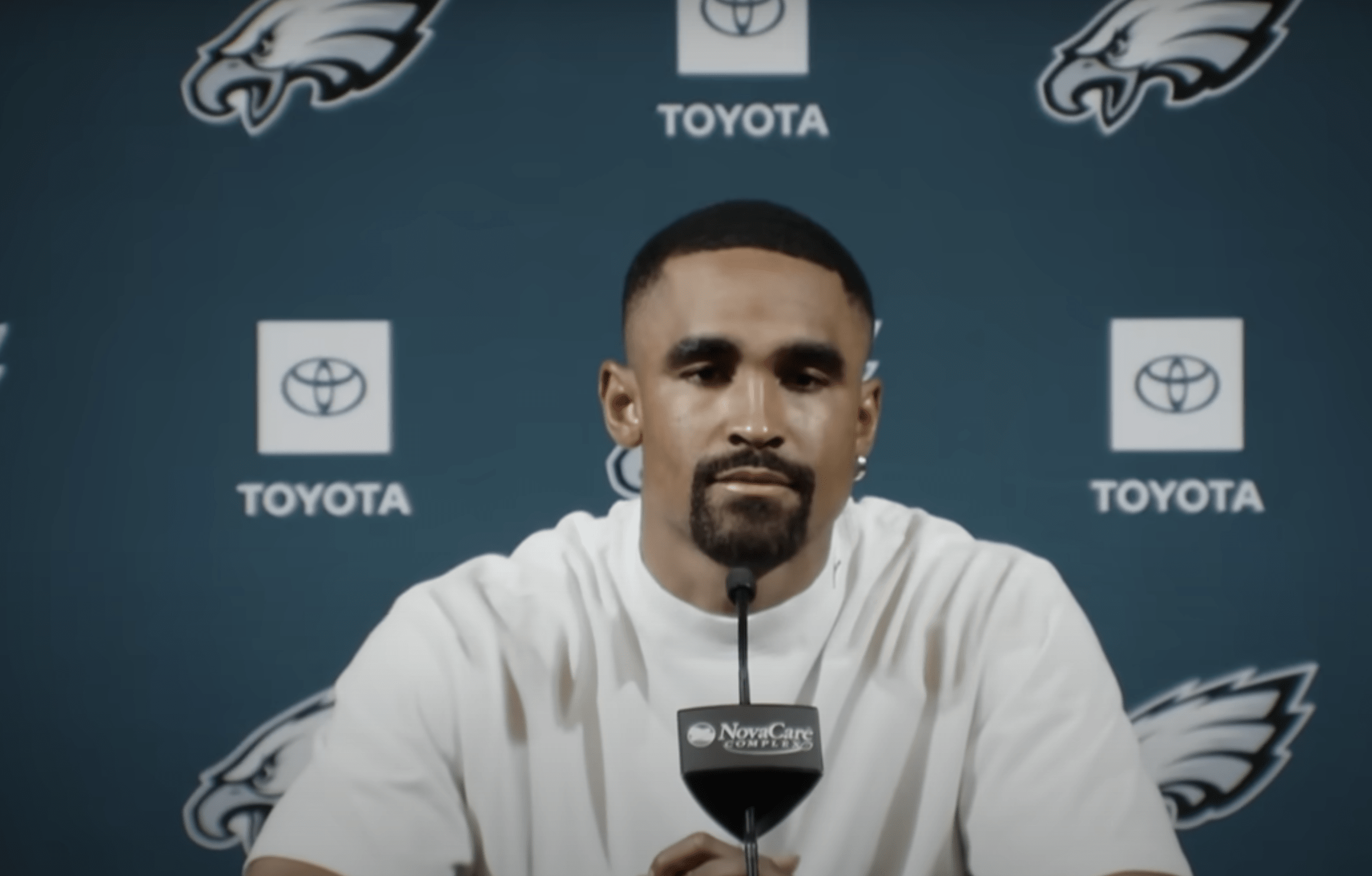In a stunning and emotionally charged interview that has shaken the sports world, Philadelphia Eagles quarterback Jalen Hurts delivered a searing critique of modern media culture — accusing online tabloids and social platforms of “fueling hatred and destroying a young man’s life” in the case of former LSU wide receiver Kyren Lacy.
Sitting across from veteran journalist Lisa Robinson, Hurts opened up about the death of Lacy, who took his own life earlier this year after being accused of reckless driving and negligent homicide in connection with a fatal car crash. Visibly distraught, Hurts’ voice broke as he recalled the relentless wave of online abuse that followed Lacy’s arrest — long before any evidence had been proven in court.

“The media didn’t just report on him — they destroyed him,” Hurts said, his tone a mix of anger and heartbreak. “They turned a scared young man into a monster for clicks. And when the truth started to come out, it was too late. The damage was done.”
Lacy, only 24 years old, was found dead in his apartment in April 2025, just days before his court date. His attorney had released surveillance footage that appeared to contradict the prosecution’s claims, suggesting that Lacy may not have been behind the wheel at the time of the crash.
By then, however, the public judgment had already taken its toll.

Hurts, who had quietly supported Lacy’s family behind the scenes, decided to speak out after seeing what he described as a “cycle of destruction” — where young athletes are glorified one day and vilified the next.
“These kids come from nothing,” he said. “They make one mistake — or get accused of one — and the world throws stones before the facts even surface. Kyren wasn’t perfect, but he didn’t deserve to die trying to prove he wasn’t what they said he was.”
The interview has gone viral, sparking an avalanche of emotion across the NFL and beyond. Players, fans, and even coaches have joined Hurts in calling for media accountability and systemic change. The hashtag #JusticeForKyrenLacy has surged back into national trends, reigniting conversations about mental health, toxic media narratives, and the crushing weight of public scrutiny.
Mental health advocates say Hurts’ words could be a turning point. “When someone like Jalen Hurts speaks up, people listen,” said Dr. Elaine Morrison, a sports psychologist. “His message is clear — empathy must come before exposure, truth before traffic.”
As the dust settles, one truth resonates louder than ever: Kyren Lacy’s story is no longer just a tragedy — it’s a warning. A warning about the cost of digital cruelty, the dangers of unchecked media power, and the desperate need for humanity in a world that often forgets what that word means.
“We can’t bring Kyren back,” Hurts concluded. “But we can stop this from happening again. We owe him that much.”